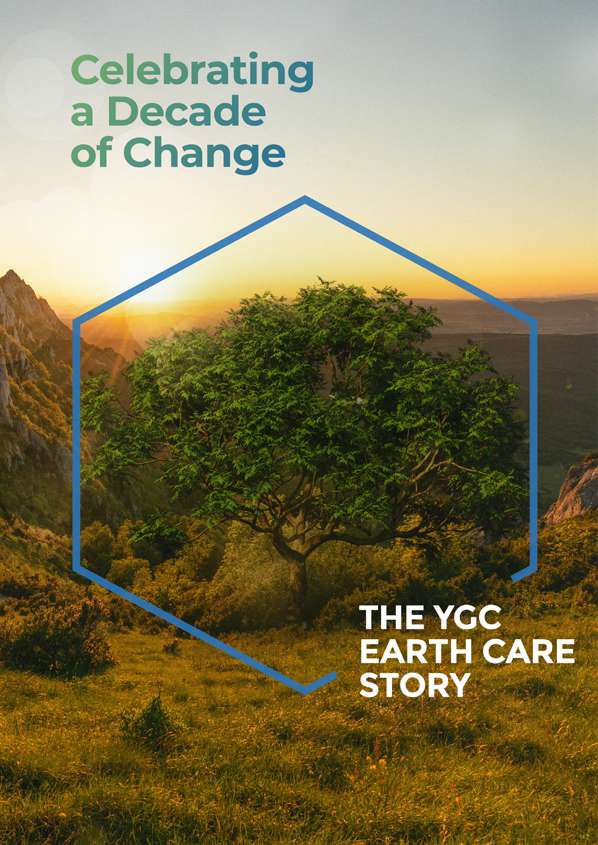RCBC remains at the forefront of the Philippine banking industry’s move towards building a climate-resilient and low-carbon loan portfolio. Being in a country that is considered among the most vulnerable to climate change makes it imperative for the Bank to play a role in reducing carbon emissions through sustainable finance.
RCBC institutionalizes awareness of environmental and social issues within the organization, with its clients, and communities served. The Bank believes that sustainable practices are a key pillar of responsible lending which delivers meaningful impact on the environment and communities.
The Bangko Sentral ng Pilipinas (BSP) underscores the need for banks to be aware of climate change and manage its associated risks to fully maximize the opportunities for lending or investing in green or sustainable projects. Banks have the ability to design sustainable financing instruments (SFIs) to fund pandemic response and recovery, as well as support other economic activities that contribute to long-term sustainable development.
Sustainable Finance Strategy
RCBC strongly supports the BSP’s call for financial institutions to be enablers of environmentally and socially responsible business decisions.
RCBC is one of the earliest adopters of BSP Circular 1085 which mandates Philippine banks to integrate sustainability considerations in their governance frameworks, risk management systems, strategies and operations. The Bank has been implementing its Environmental and Social Management System (ESMS) since 2011 and its own Sustainable Finance Framework since April 2019.
In 2021, RCBC became the first Philippine bank to be a signatory of the Partnership for Carbon Accounting Financials (PCAF) and the first Southeast Asian advisory engagement of the International Finance Corporation (IFC) and 2 Degrees Investing Initiative (2DII) for the use of the Paris Agreement Capital Transition Assessment (PACTA) tool. In 2022, the Bank started adopting these quantitative global climate risk analysis tools to help address climate change in terms of our loan portfolio.
Sustainable Finance Risks and Opportunities
Banks and financial institutions have a vital role in reducing global warming, supporting the government in meeting its sustainability objectives, and effectively contributing to the UN Sustainable Development Goals (SDGs) and the Paris Agreement. RCBC aligns its business strategy to support the development needs of the environment and society, as articulated in the UN SDGs and the Paris Agreement on Climate Change.
In November 2022, The World Bank Group’s Country Climate and Development Report (CCDR) for the Philippines was released, emphasizing the urgency for the country to implement “vigorous adaptation efforts” to counter the ill effects of climate change. According to the CCDR, lack of action against climate change may lead to “economic damages in the Philippines” estimated to “reach up to 7.6% of GDP by 2030 and 13.6% of GDP by 2040.” The CCDR strongly advocates support for the development of projects on renewable energy, energy efficiency, sustainable transport, as well as the creation of smart cities to alleviate climate change that is seen to adversely affect the country’s agriculture and capitali ntensive sectors.
In December 2020, RCBC committed to cease funding of the construction of new coal power plants in the country. The Bank’s remaining exposure to coal-fired power projects will be zeroed out by 2031. RCBC has continually supported renewable energy projects, funding for which has dominated the Bank’s eligible sustainable portfolio for the past five years. In 2024, financing for renewable energy accounted for more than 40% of the bank’s total sustainable portfolio and surpassed the bank's remaining exposure to coal-fired power projects.
Below are RCBC’s initiatives to lower its carbon footprint and support sustainable finance activities to help meet the UN SDGs:
- Transformed its Corporate Head Office in Manila into a LEED Gold-certified building in 2018
- The Bank’s headquarters – the RCBC Plaza in Makati City and the AT Yuchengco Centre (ATYC) in Taguig City have started being powered by RE sources from ACEN in August 2024 and September 2024, respectively
- Funded Green Projects that support the UN SDGs, in particular, the Clean Water and Sanitation, Affordable and Clean Energy, Industry, Innovation and Infrastructure, Sustainable Cities and Communities, and Responsible Consumption and Production goals
- Channeled Php83 billion to projects and loans that contribute to reducing the carbon footprint of the Philippines
- Funded social projects that support the UN SDGs, in particular, the Good Health and Well-being, Quality Education, Gender Equality, Decent Work and Economic Growth, Reduced Inequalities, and Sustainable Cities and Communities goals
- Channeled Php43 billion to fund projects and loans that provide access to social needs, directly improving the living conditions of Filipinos
RCBC Sustainable Finance Framework
Under RCBC’s Sustainable Finance Framework, the Bank can issue green, social or sustainable debt instruments. Since 2019, the Bank has issued around USD2.1 billion worth of SFIs that refinanced funding for over 19,000 sustainable projects. In February 2022, RCBC launched the country’s first green time deposit to promote environmental awareness while saving funds. The continual development of SFIs aims to increase awareness among peer banks and promote a concerted effort toward preventing further damage to the environment and communities. RCBC raised USD 400 million in January 2024 from its five-year Sustainability Bonds issuance (5.9x oversubscribed) and another USD 350 million in January 2025, reflecting the trust in RCBC’s sustainability efforts and credit outlook.
Archive
Sustainability and Impact Report 2023
Sustainability and Impact Report 2022
Sustainability Bonds Impact Report 2021
Sustainability Bonds Allocation Report 2021
Sustainability Bonds Impact Report 2020
Sustainability Bonds Allocation Report 2020

